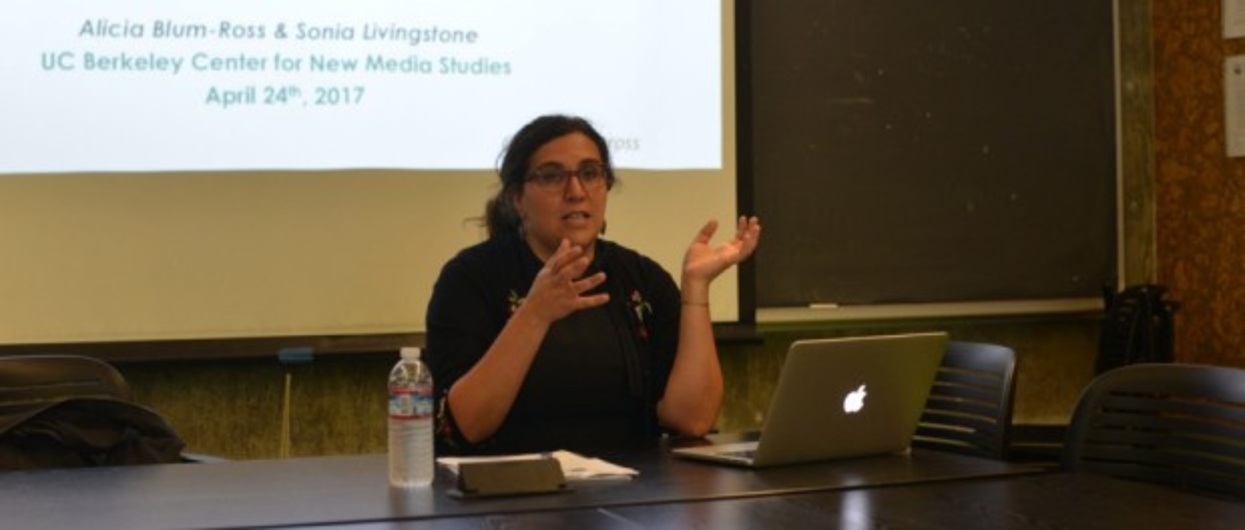Revisited: "Parenting for a Digital Future"

Alicia Blum-Ross sparked an exciting discussion on technology practices among parents the BCNM on April 24, 2017, when she offered a description of her MacArthur funded research on "Parenting for a Digital Future." Alicia's research centers around parents' reaction to and engagement of digital media in home life. While studies have focused often on school and program technology learning, the difficulties of studying technology in the home -- where no metrics exist and groups are so vastly disparate-- remains relatively untouched. Alicia steps into this gap to ask how parents conceive of their practice in relation to discourses on digital futures.
This site is particularly fruitful as it represents a break from past repositories of parenting knowledge. While many parents compare their practices to those of their own parents, they have no model to follow or from which to deviate when it comes to digital media. Through interviews with 73 families in London, Alicia delves into how parents are responding to this unchartered territory.
The vast majority of parents balance children's access to digital media, while some parents wholeheartedly embrace these new technologies, and others actively resist such engagement. Most cite reasons for their decisions based on the following key themes: a romantic vision of future opportunities, necessary training, the possibility for a more flexible future, or the precarity of their child's engagement (safety etc.).
Interestingly, traditional sociological categories don't map out neatly onto how parents treat digital technologies. Many working class families for example do not exhibit a "natural growth" model for parenting but are actively intervening in their children's media learning. The efficacy of their actions, however, can be doubtful (in some cases, parents were able to buy a computer but could not afford access to the internet).
We're excited to see the conclusions that arise from Alicia's research! To learn more about the project, visit: http://blogs.lse.ac.uk/parenting4digitalfuture/
